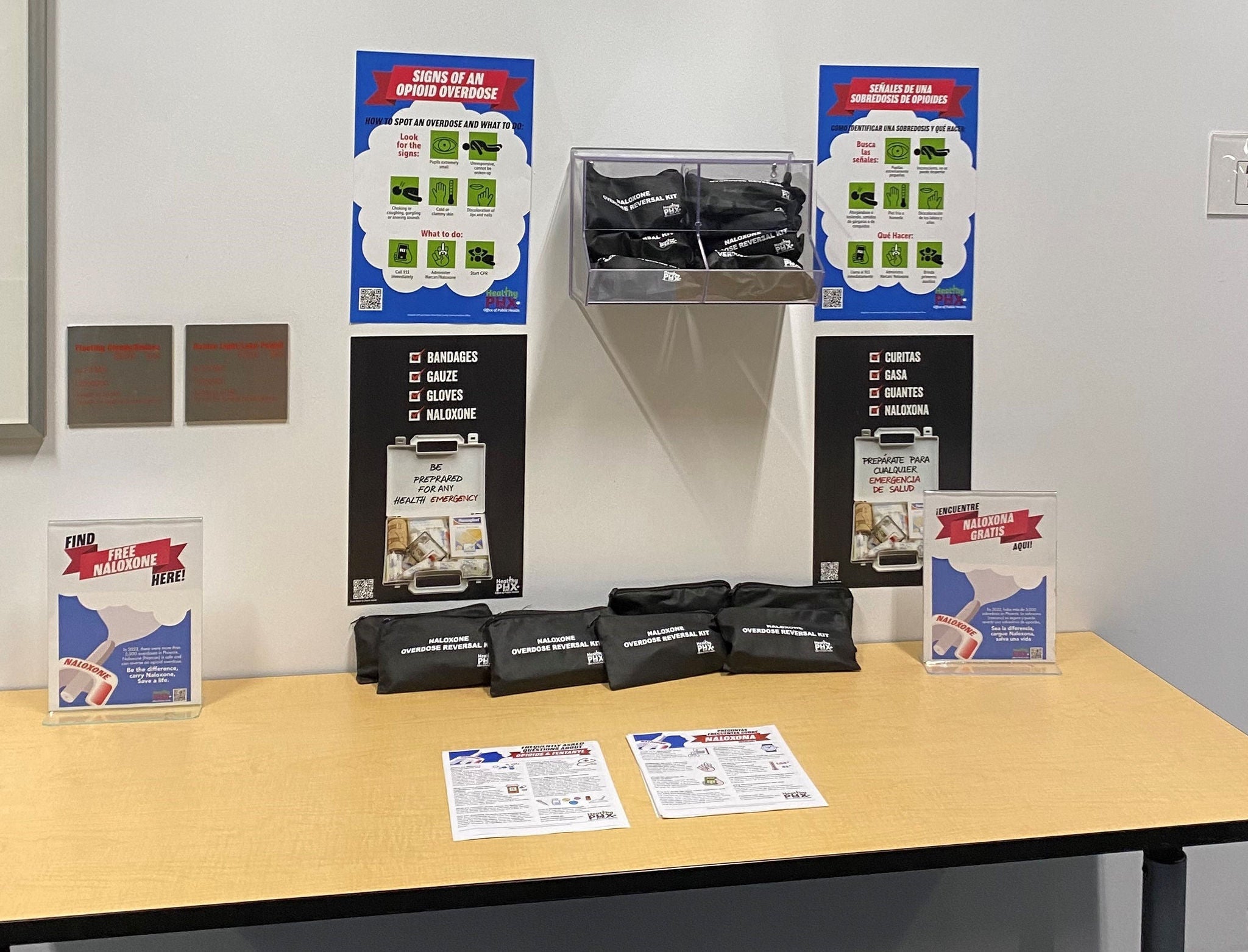Phoenix launches a Citywide food drive to assist residents experiencing food insecurity during the holidays.
Frequently Asked Questions - Phoenix Office of Public Health

Welcome to the Office of Public Health's Frequently Asked Questions page. Please use the table of contents below to find what you are looking for. If you need further assistance, please contact us.
Reporting a Public Health Concern
The Neighborhood Services Department handles all code compliance issues related to blight, deterioration, and illegal land use activities to promote the health and safety of Phoenix residents while preserving property values. Please see this link for more information on filing a code compliance case with Neighborhood Services.
For all other services, including reporting non-emergency crimes, requesting inspections, requesting hazardous waste pick-up, reporting street maintenance issues, filing accessibility and ADA concerns, and much more, please utilize myPHX311 at this link or use the myPHX311 app.
Substance Use
Please see the following resources on specific substances from the DEA:
- Fast Facts about Fentanyl
- Fast Facts about Xylazine
- Fast Facts about Stimulants
- Fast Facts about Marijuana/Cannabis
- Fast Facts about Amphetamines
- Fast Facts about Heroin
- Fast Facts about Methamphetamine
- Fast Facts about Ecstasy or MDMA (also known as Molly)
For all FAQ on the PSUOD, please click here.
Naloxone (Narcan)
Naloxone (brand name: Narcan) is a lifesaving, FDA-approved medication designed to reverse an opioid overdose by binding to opioid receptors in the brain to block the effects from drugs such as fentanyl, heroin, morphine, and oxycodone.
There are some different types of Narcan, but the City of Phoenix’s Narcan Program utilizes the intranasal form.
- The intranasal Narcan is administered through the nose.
- After administering the first dose of Narcan nasal spray, wait 2 minutes before supplying another.
- Narcan will cause the individual to go into withdrawal. For this reason, make sure they have space; do not crowd them while you let the medicine work.
- Make sure you always call 911 if you think someone is overdosing on opioids. They may need further care, so this step is critical.
- For more information on how to use Naloxone see this page.
Through the City’s Naloxone Program, Narcan is made available for free from all 17 Phoenix public libraries and the Bookmobile – no questions asked!
Just walk in, find the naloxone display area, and grab a kit for you or your loved ones who may need one.

The Arizona Department of Health Services might be able to help fulfill your order. Visit https://www.azdhs.gov/opioid/naloxone/index.php for more information.
Health and Heat
Heat is a very important health concern in Arizona, where temperatures can reach over 120 degrees in the Summer. The Office of Public Health Office works closely with federal, state, and national public health partners to provide information resources and information relevant to Phoenix at this link.
Substance use is a huge factor when it comes to heat illness and death. Both legal and illicit substances can have an impact on your body’s ability to handle heat exposure over time. Stimulants like Adderall and Methamphetamine increase the body’s core temperature, which increases the risk of heat illness by affecting the body’s ability to adapt to high temperatures.
It is important to remember that depressants like alcohol and opioids also pose risks when it comes to heat illness. These substances can alter your ability to recognize heat illness symptoms, increasing the risk of overexposure. Alcohol can also fuel dehydration, putting you at greater risk.
Always speak with your doctor about your medications to determine if you should be aware of any risks associated with heat while using these medications.
